India: Forum Shopping, an expensive affair!
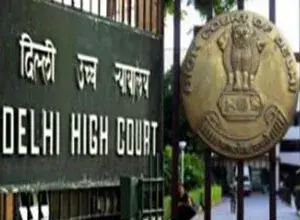
Sources: www.delhihighcourt.nic.in
A Division Bench comprising of Hon’ble Mr. Justice Vipin Sanghi and Hon’ble Mr. Justice I.S.Mehta of Hon’ble High Court of Delhi has recently taken cognizance of the malpractice of Forum Shopping involving the Judges of the District Court and certain practicing Advocates. Forum shopping is a colloquial term for the practice of litigants having their legal case heard in the court thought most likely to provide a favourable judgment. The Bench has issued a notice in a Criminal Contempt filed by Capital Ventures Pvt. Ltd. along with the other Intervenors, which raises very serious concerns about the manner in which the matters particularly, suits are listed before particular Judicial Officers in the District Courts. The Petitioner has brought out several instances where the same counsel representing the respondents has moved repeated applications in different suits to have the different suits listed before particular Judicial Officers. The Petitioner has claimed that favourable orders were obtained by the Respondents from the said Judicial Officers to which they were not entitled on merits.
The Hon’ble Bench without casting any aspersion either on the Counsel or on the Judicial Officers, has directed that the IPR suits preferred by the Respondents in question should not be listed before the aforesaid three Judicial Officers and if so listed, be assigned to some other Courts by the concerned District & Sessions Judge.
Additionally, the Bench has also directed the Respondents to disclose in the reply the following details:
- The number of suits it has filed in respect of its IPR with complete particulars of suit number, the date of its filing, the counsel through whom the same has been filed and the Judicial Officers before whom the matter was listed initially;
- Whether an application for marking and listing before a particular Judicial Officer was moved;
- The name of the Judicial Officer before whom the matter was sought to be listed;
- Whether the matter was listed before the Judicial Officer as desired by the respondents;
- Whether any ex-parte orders of injunction were passed, and;
- The date of the ex-parte ad-interim orders of injunction, if any.;
It seems that the Court has rightly triggered the malpractice of Forum Shopping being adopted by litigants in IP suits. The anti-forum shopping directions of Hon’ble Division Bench of the Hon’ble High Court of Delhi are clear warning to the officers of Court that forum shopping can prove to be an expensive affair for them.
India: Delhi High Court on the link between cause of Action and Jurisdiction
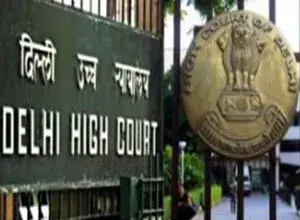
In the case of Microsoft Corporation & Anr vs Rajesh Kumar & Ors the Hon’ble Delhi High Court dismissed the application filed by Rajesh Kumar and others (hereinafter referred as the Defendant) under Order 7 Rule 10 of CPC holding that the Hon’ble Delhi High Court had jurisdiction to decide the case filed by Microsoft Corporation and another (hereinafter referred as the Plaintiff).
BRIEF FACTS
- The Plaintiff is a subsidiary of American software company Microsoft Corporation, headquartered in Hyderabad, India. It has offices in the 9 cities of Ahmedabad, Bangalore, Chennai, Hyderabad, Kochi, Kolkata, Mumbai, the NCR (New Delhi and Gurgaon) and Pune.
- Defendant is a global software services company headquartered at New Jersey, USA and having other offices in DC Metro area and a state of the art outsourced software development based out of New Delhi, India.
- It was alleged that the Defendant used unlicensed versions of the Plaintiff’s software for servicing its clients, on the Defendant’s employees’ laptops, during presentations, etc. Cause of action arose in Gurugram, Haryana and Hyderabad, Telangana where Plaintiff have their offices and carrying on their business.
- An application under Order 7 Rule 10 of CPC was filed by the Defendant alleging that in the entire plaint there is no allegation from the Plaintiff for copyright violation in Delhi, but only in Gurugram, Haryana and Hyderabad.
- Therefore, it was alleged this Court has no territorial jurisdiction to entertain this suit and the plaint be returned.
PLAINTIFF’S CONTENTIONS
- It was contended that since the Defendant was using the unlicensed software to service the clients in Delhi, the Court had jurisdiction.
- It was also stated that since the Plaintiff carries on business from Delhi, the Court had territorial jurisdiction. Thus, the Defendant’s own documents or its websites gave hints of its operative office in New Delhi.
- Referring to page 24 of the Defendants’ website that the Defendant admitted that they are using the Plaintiff’s technology. It was further pointed out that page 46 of the website states that ‘the Courts in New Delhi, India shall have the exclusive jurisdiction on any dispute that may arise out of the use of this site.’
DEFENDANT’S CONTENTIONS
- It was alleged that this Court had no territorial jurisdiction as the Plaintiff had business and its subordinate offices at Gurugram and at Hyderabad and at which places the cause of action had also arisen.
- The allegations made in para 28 of the plaint that ‘Defendant would be servicing their clients, using the unlicensed software programs of the Plaintiffs, on the Defendants’ employee’s laptops, during presentations etc., in Delhi’, were denied calling it a speculation.
- It was alleged that in the entire plaint there is no averment of Plaintiff’s copyright violation within the territorial jurisdiction of this Court and rather per averments made in the plaint, the cause of action has arisen only at Gurugram, Haryana and in Hyderabad, Telangana at which places the Plaintiffs have their offices and are also carrying its business.
- The locus standi of the Plaintiff no. 2 was also challenged alleging that they were neither the owner of the copyright of this software nor an assignee.
COURT’S DECISION
- The Court referring to the rule laid down in Pfizer case and The LT Foods Ltd. case held that the Defendant had to specifically deny each, and every assertion made by the Plaintiff other than the jurisdiction, if they do not then it can be seen as an admission.
- The Court also considered that on their website the Defendant had admitted that one of its offices is in New Delhi, they have also mentioned that being a global company and as per that company’s governing laws, the Courts in New Delhi were given an exclusive jurisdiction. Also, as no denial of the allegations made by the Plaintiff was done, it cannot be said that the Court had no jurisdiction.
In view of the above, the Hon’ble Court held that the application under Order 7 Rule 10 for return of the Plaint filed by defendant, was devoid of any merits and dismissed the same.
PCT rules amendment on fee reduction
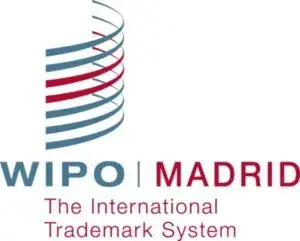
Sources: www.wipo.int
According to an amendment to the regulations under the Patent Cooperation Treaty (PCT) adopted by the Assembly of the International Patent Cooperation Union (PCT Union) on September 30, 2014, at its Forty-Sixth (27th Extraordinary) Session, with effect from July 1, 2015, a revised schedule of fee structure is provided. As per amendment to the PCT Schedule of Fees, the 90% fee reductions in item 5 of the Schedule of Fees is applicable, if the international application is filed by:
- a. an applicant who is a natural person and who is a national of and resides in a State that is listed as being a State whose per capita gross domestic product is below US$ 25,000 (according to the most recent 10-year average per capita gross domestic product figures at constant 2005 US$ values published by the United Nations), and whose nationals and residents who are natural persons have filed less than 10 international applications per year (per million population) or less than 50 international applications per year (in absolute numbers) according to the most recent five-year average yearly filing figures published by the International Bureau; or
- b. an applicant, whether a natural person or not, who is a national of and resides in a State that is listed as being classified by the United Nations as a least developed country;
Provided that, if there are several applicants, each must satisfy the criteria set out in either sub-item (a) or (b).
Further, as per understanding adopted by the PCT Assembly, which became effective from October 11, 2017; the above stated 90% fee reduction would be applicable only to those applicant(s) who are the sole and true owners of the application and are under no obligation to assign, grant, convey or license the rights in the invention to another party which is not eligible for the fee reduction.
Hence, only if the PCT international application is filed by the sole and true owners of the invention satisfying the criteria set out in either sub-item (a) or (b) of item 5 of the Schedule of Fees, the 90% fee reduction is allowed. In case, the request for such fee reduction is filed by the assignee or other party on behalf of the sole and true owners of the PCT international application, such fee reduction shall not be allowed if such party is otherwise not eligible for the fee reduction.
India: Impact of proposed EU IPR enforcement mechanism on the growth of Indian generic drugs
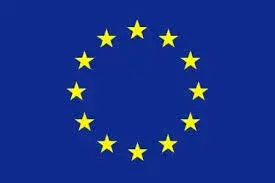
Sources: www.wipo.int
India is one of the largest suppliers of low cost generic medicines in the world. The use of generic medicines, in comparison with their branded counterparts, has the potential to substantially reduce out-of-pocket expenditure on drugs for chronic diseases like cancer. Friction between generic drug manufacturers and innovation companies typically arise when generic drug manufacturing companies initiate research using a patented product, to submit information to regulatory bodies like Drug Controller General of India, to seek approval for introducing a generic version of a patented product. Bayer vs Cipla case for development of generic drug “sorafenib” for patent product ‘Nexavar’ is a landmark case in this regard. Though the generic drug manufacturer is allowed to introduce the generic version subsequent to patent expiration, the research on patented drug is carried out when the patent is still in force. Several countries, including India, have provisions governing such research activities.
The Indian Patent Act, hereinafter referred as “Act” includes provisions that facilitate research and development using patented product/process without being liable for infringement. Such an exemption from patent infringement is known as Bolar Exemption. Section 107A (a) of the Act provides bolar provision as mentioned below:
- 107A. Certain acts not to be considered as infringement. – For the purpose of this Act, (a) any act of making, constructing, using or selling or importing a patented invention solely for uses reasonably relating to the development and submission of information required under any law for the time being in force, in India, or in a country other than India, that regulates the manufacture, construction, use or sale of any product;… shall not be considered as an infringement of patent rights.
The above provision is not limited to pharmaceutical products, but also extends to any product/process that may require regulatory approvals.
Médecins Sans Frontières (MSF) is a non-profit, self-governed organization providing emergency aid to people affected by armed conflict, epidemics and natural disasters, it includes distribution of affordable medicines like generic drugs to them. A recent move by the European Union (EU) to introduce an enforcement mechanism for IP rights has been criticized by the MSF in its recent 2018 letter to EU. Under the said enforcement mechanism, the court is empowered to grant ‘provisional injunction’ for infringement of patent. Further, the proposed provision also grants extraordinary right to the patent holder to draw everyone in the manufacturing and supply chain into litigation, if found suspected of patent violation, even without any actual proof of it. Furthermore, the scope of above said regulatory provision is so wide that it may even drag to the court the third-party procurers of generic drugs, such as MSF, that supplies affordable generic medicines to low income countries around the world. Hence, the said provision is vague and unethical.


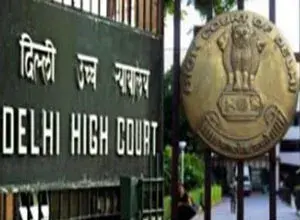 A Division Bench comprising of Hon’ble Mr. Justice Vipin Sanghi and Hon’ble Mr. Justice I.S.Mehta of Hon’ble High Court of Delhi has recently taken cognizance of the malpractice of Forum Shopping involving the Judges of the District Court and certain practicing Advocates.
A Division Bench comprising of Hon’ble Mr. Justice Vipin Sanghi and Hon’ble Mr. Justice I.S.Mehta of Hon’ble High Court of Delhi has recently taken cognizance of the malpractice of Forum Shopping involving the Judges of the District Court and certain practicing Advocates.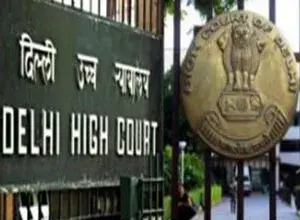 In the case of Microsoft Corporation & Anr vs Rajesh Kumar & Ors the Hon’ble Delhi High Court dismissed the application filed by Rajesh Kumar and others under Order 7 Rule 10 of CPC.
In the case of Microsoft Corporation & Anr vs Rajesh Kumar & Ors the Hon’ble Delhi High Court dismissed the application filed by Rajesh Kumar and others under Order 7 Rule 10 of CPC.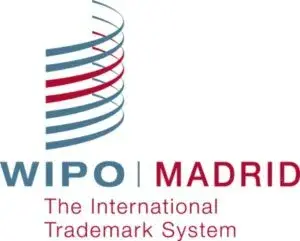 According to an amendment to the regulations under the Patent Cooperation Treaty (PCT) adopted by the Assembly of the International Patent Cooperation Union (PCT Union) on September 30, 2014, at its Forty-Sixth (27th Extraordinary) Session, with effect.
According to an amendment to the regulations under the Patent Cooperation Treaty (PCT) adopted by the Assembly of the International Patent Cooperation Union (PCT Union) on September 30, 2014, at its Forty-Sixth (27th Extraordinary) Session, with effect.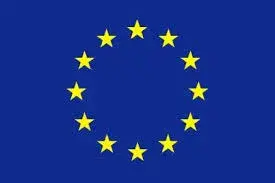 Bayer vs Cipla case for development of generic drug “sorafenib” for patent product ‘Nexavar’ is a landmark case in this regard. Though the generic drug manufacturer is allowed to introduce the generic.
Bayer vs Cipla case for development of generic drug “sorafenib” for patent product ‘Nexavar’ is a landmark case in this regard. Though the generic drug manufacturer is allowed to introduce the generic.